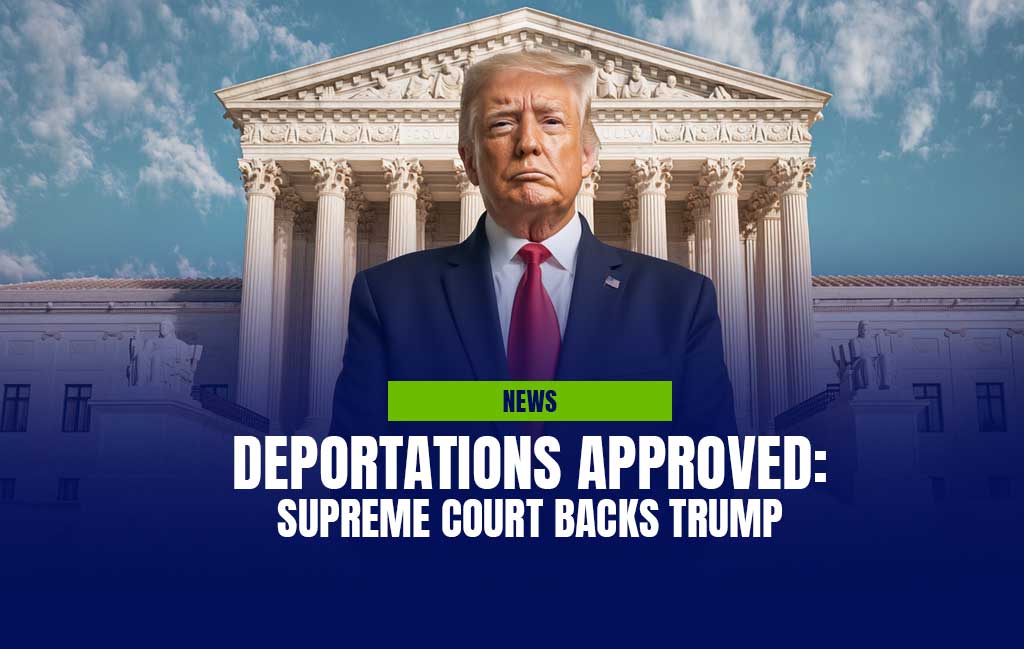In a closely divided 5-4 decision, the U.S. Supreme Court ruled on Monday that the Trump administration can proceed with deporting certain Venezuelan migrants under a centuries-old wartime law—but only if those individuals are first given an opportunity to appear in court.
At the center of the case is the Alien Enemies Act of 1798, a rarely invoked law that allows the U.S. government to detain or deport nationals of hostile nations during wartime. The Trump administration has used the law to target Venezuelan migrants it claims are connected to the violent gang Tren de Aragua, a criminal group operating across Latin America.
The Court’s conservative majority upheld the administration’s use of the law but imposed an important limit: migrants must be granted “reasonable time” to seek judicial review before removal. The justices also ruled that all legal challenges must take place in Texas, where the government filed its initial cases, rather than in Washington, D.C., where a federal appeals court had temporarily blocked the deportations.
The liberal justices dissented, warning that the ruling undermines fundamental legal protections. Writing in dissent, Justice Sonia Sotomayor argued that the administration had sought to bypass proper judicial oversight and that the Court’s majority had effectively rewarded that strategy. Justice Amy Coney Barrett, though part of the conservative wing, joined portions of the dissent—signaling unease with aspects of the administration’s approach.
The Trump administration filed the emergency appeal after the D.C. Circuit Court of Appeals upheld a temporary block on deportations, citing due process concerns. Immigration and civil rights advocates had argued that the use of the Alien Enemies Act in this context—against migrants not formally accused of espionage or wartime aggression—was unconstitutional and overly broad.
This ruling now permits the resumption of deportations, but under tighter conditions. The administration must now ensure that accused individuals are informed of the charges against them and allowed to challenge their removal in court before being deported.
The case has emerged as a flashpoint in the growing tensions between the Trump White House and the federal judiciary, especially as immigration enforcement continues to be a defining issue in the run-up to the 2026 midterms. Critics fear this sets a dangerous precedent for expanding executive power during periods of perceived national security threats—even outside formal wartime conditions.


